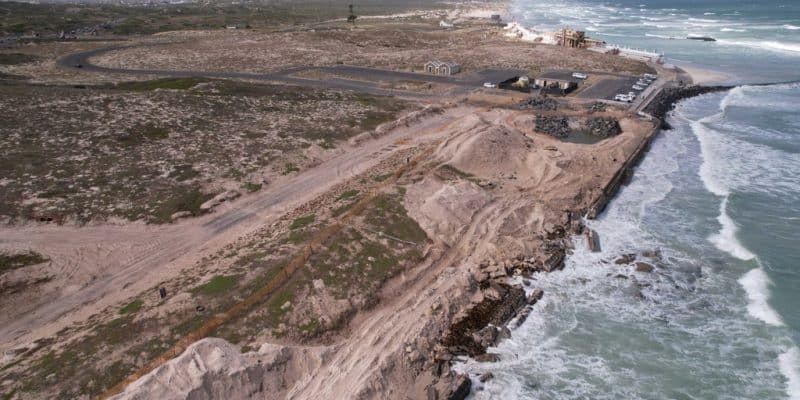In response to climate change, the South African city of Cape Town is to invest $64.6 million in protecting urban biodiversity and the coastline. The funding is set out in the new budget recently adopted by local councillors.
For the period from July 2023 to July 2026, the municipality of Cape Town in South Africa will devote 1.2 billion South African rand ($64.6 million) to green projects. This budget, recently adopted by the local authorities, will accelerate the implementation of the 14th and 15th Sustainable Development Goals (SDG14 and 15) of the United Nations, which focus respectively on the protection of marine environments and terrestrial biodiversity.
At least 210 million South African rand ($11.3 million) of this package is earmarked for the preservation of biodiversity, including 71.3 million rand ($3.8 million) for the restoration of the Edith Stephens and Helderberg nature reserves, 33.7 million rand for the rehabilitation of the Asanda village wetland, and 105 million rand ($5.6 million) for the construction of new education centres in Bracken, Harmony Flats, Zandvlei and Westridge.
“These sites are home to exceptional flora and fauna. They provide a haven for residents and visitors to explore all aspects of nature,” says Eddie Andrews, Deputy Mayor of Cape Town. In addition to the sustainable management of ecosystems, South Africa’s oldest city also intends to strengthen the protection of its 307-kilometre coastline, which is plagued by coastal erosion.
Towards a resilient city
At a total cost of 288.8 million South African rand (15.5 million dollars), the works will involve upgrading the Seaforth beach enclosure, modernising the Muizenberg seafront (one of the most popular destinations along the False Bay coast) and rehabilitating the dune belt. It will also allow for the construction of a 4 m wide footbridge and the upgrading of the Strand seawall along Beach Road “to protect adjacent properties and infrastructure from the impact of storm surges and rising sea levels”.
Read also-SOUTH AFRICA: solar-powered charging station goes into service in Cape Town
Meanwhile, the Cape Town municipality with a population of 4.9 million is continuing to build a 2 MW biogas plant at the Vissershok landfill site. The 197 million South African rand ($11.5 million) facility, due to be completed by 2025, will convert organic waste into biogas and then electricity to reduce dependence on the controversial state-owned company Eskom.
Benoit-Ivan Wansi







